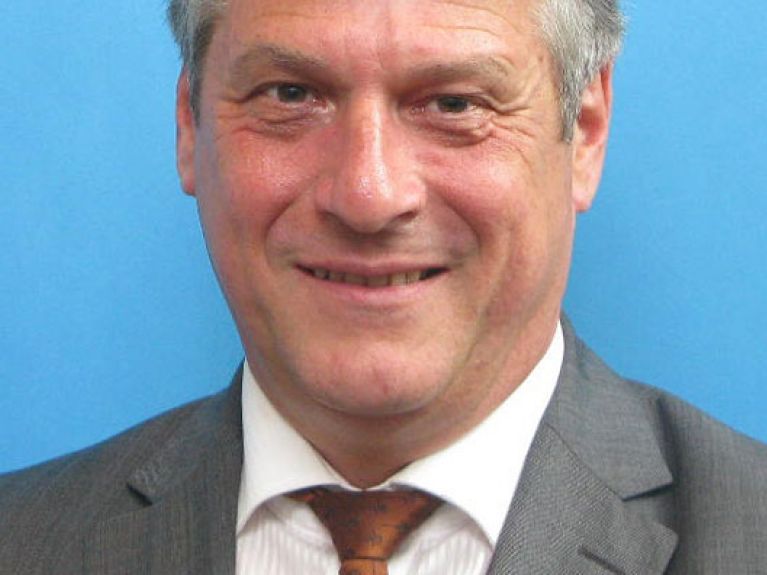The Stabilisation Leaders’ Forum
Stabilisation is an important issue for German foreign policy. A short interview with Rüdiger König, Head of the Department for Crisis Prevention, Stabilisation and Conflict Reconstruction at the Federal Foreign Office, on the Stabilisation Leaders’ Forum.

Mr König, on 17 and 18 October representatives from 11 countries, the EU and the United Nations will meet in Berlin to discuss questions of stabilisation. What exactly is the aim of the Stabilisation Leaders’ Forum, and why is it meeting in Berlin?
Since the Balkan wars of the 1990s, we in Germany have been thinking about questions of stabilisation. Even then we made every effort to support our diplomatic commitment to sustainable conflict resolution with specific, on-site measures so as to give people a prospect of hope – the famous peace dividend. We did the same later in Afghanistan and to a much greater extent. For all the importance of military operations in both regions, civil society measures have a decisive significance for the credibility of our commitment.
There are unfortunately good reasons to assume we’ll continue to have to deal in the foreseeable future with crisis developments in the world. In 2015 Foreign Minister Steinmeier therefore decided to adapt our internal structure and founded the new division “S” – the Department for Crisis Prevention, Stabilisation and Conflict Reconstruction. Since then its job has been to define our possibilities for action more effectively and to make a sustainable contribution to defusing crises and conflicts.
We’re not alone in this: many friendly states have created similar structures. The Stabilisation Leaders’ Forum is an informal association of important stabilisation actors. We talk to each other regularly, compare our concepts and experience of their implementation. How can we improve together? Who has had special experience that might help others? These are the topics discussed at the Forum.
What exactly do you mean by “stabilisation”?
For us, stabilisation is important above all after an armed conflict. We use our instruments to support political processes of conflict resolution and to curb violence. The idea is to help lay the foundations for a legitimate order. We want to prevent renewed violence. One example: in Iraq we help cities that have been liberated from the so-called Islamic State to clear mines, repair the water and electric supply and rebuild schools and health stations. In this way we create prospects and show that the Iraqi government and international community want to help – and are the better alternative to the terrorist rule of the IS. Such measures can’t of course create a lasting peaceful order. For the sustainable consolidation of peace and stability long-term approaches are indispensable. But with our commitment to stabilisation we have laid at least a few essential foundations that can be built upon.
And what specific results do you expect from the talks?
We’ll take a look of course at the crises we all know from the headlines: Libya, Iraq, Syria. We also want to consider together how young people in particular can be deterred from slipping into militant fanaticism – there are interesting approaches! And finally we’ll look at Africa, where upcoming elections unfortunately often involve violent clashes. We know when the elections are taking place; what we’re now seeking are ways to prevent or fence in these foreseeable crisis developments either politically or through projects working together with the respective civil society.
Stabilisation Leaders’ Forum, 17 and 18 October 2016 in Berlin

